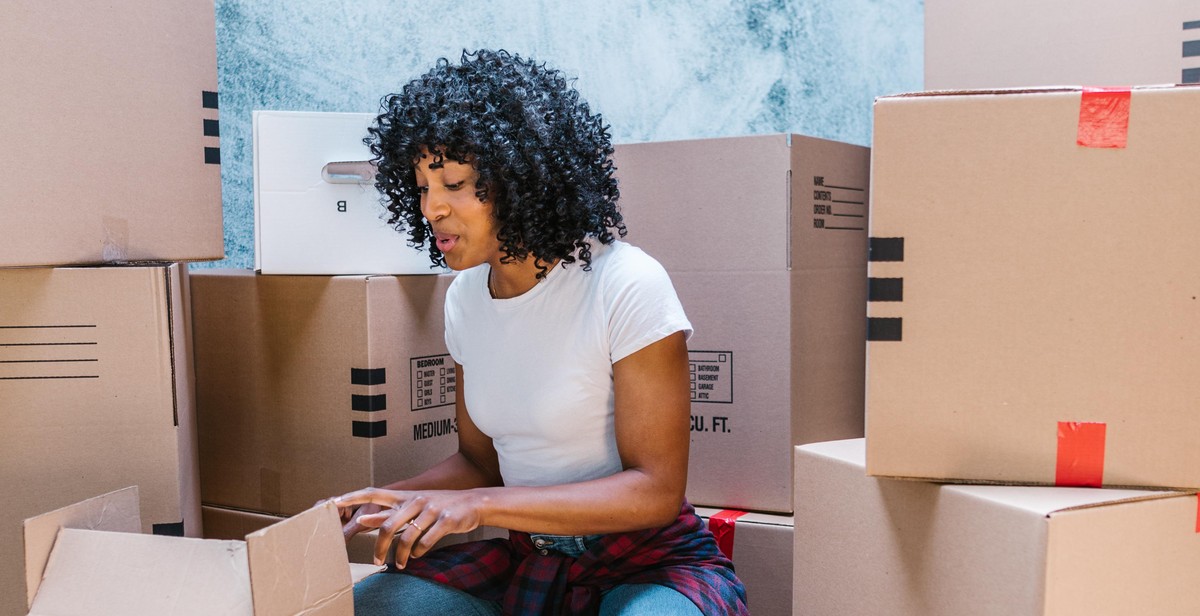Introduction: Healing From a Toxic Relationship
Relationships can be a source of love, happiness, and growth. However, not all relationships are healthy. Toxic relationships can leave emotional scars that can last a lifetime. If you have been in a toxic relationship, you know how draining and damaging it can be.
What is a toxic relationship? A toxic relationship is one that is emotionally or mentally unhealthy, draining, and can cause harm to one or both partners. It can be characterized by manipulation, control, jealousy, and lack of respect.
Signs of a Toxic Relationship
It is essential to recognize the signs of a toxic relationship so that you can take steps to heal and move on. Some common signs of a toxic relationship include:
- Constant criticism and belittling
- Control and manipulation
- Jealousy and possessiveness
- Isolation from friends and family
- Gaslighting and denial of wrongdoing
- Physical, emotional, or sexual abuse
If you are experiencing any of these signs, it is essential to seek help and support. Healing from a toxic relationship takes time and effort, but it is possible. With the right tools and resources, you can move forward and create a healthy, fulfilling relationship with yourself and others.

Emotional Healing
Healing from a toxic relationship is not just about physically separating yourself from the toxic person. It also involves emotional healing. Here are some steps you can take to help you heal emotionally:
Acknowledging the Pain
The first step in emotional healing is acknowledging the pain that you have experienced. It is important to recognize that the emotions you are feeling are valid and that it is okay to feel them. Suppressing your emotions can lead to further emotional damage and hinder your healing process.
Allowing Yourself to Grieve
Allow yourself to grieve the loss of the relationship. This can include crying, journaling, or talking to a trusted friend or therapist. Grieving is a natural process and can help you release pent-up emotions. It is important to give yourself time and space to grieve.
Forgiving Yourself and Your Partner
Forgiving yourself and your partner is an important step in emotional healing. Forgiveness does not mean forgetting what happened, but it does mean letting go of the anger and resentment that you may be holding onto. Forgiving yourself and your partner can help you move forward and start the healing process.
Letting Go of the Past
Letting go of the past is a crucial step in emotional healing. This involves accepting what has happened and focusing on the present and the future. Dwelling on the past can prevent you from moving forward and can hinder your emotional healing.
- Acknowledge the pain that you have experienced
- Allow yourself to grieve
- Forgive yourself and your partner
- Let go of the past
Emotional healing takes time and effort. It is important to be patient with yourself and to seek help if needed. Remember that healing is possible and that you deserve to live a happy, healthy life.

Rebuilding Self-Esteem
One of the most damaging effects of a toxic relationship is the toll it takes on your self-esteem. You may have been made to feel unworthy, unlovable, or even worthless by your partner. However, it’s important to remember that your self-worth isn’t determined by someone else’s opinion of you. You are valuable and deserving of love and respect, regardless of what anyone else says or does.
Identifying Your Self-Worth
One of the first steps in rebuilding your self-esteem is to identify and acknowledge your own self-worth. Make a list of your positive qualities, talents, and accomplishments. Focus on your strengths and what makes you unique. Remind yourself of these things regularly, especially when you’re feeling down or insecure.
Positive Affirmations and Self-Talk
Positive affirmations and self-talk can also be helpful in rebuilding your self-esteem. Practice saying positive things to yourself every day, such as “I am worthy of love and respect,” “I am capable and competent,” and “I am deserving of happiness.” Replace negative self-talk with positive affirmations whenever possible.
Self-Care and Self-Love
Self-care and self-love are essential components of rebuilding your self-esteem. Take care of your physical, emotional, and mental health by eating well, exercising, getting enough sleep, and engaging in activities that bring you joy and fulfillment. Treat yourself with kindness and compassion, just as you would treat a good friend.
Seeking Professional Help
If you’re struggling to rebuild your self-esteem on your own, don’t hesitate to seek professional help. A therapist or counselor can provide support, guidance, and tools to help you overcome the effects of a toxic relationship and rebuild your self-esteem.
Remember, rebuilding your self-esteem takes time and effort, but it’s worth it. You deserve to feel confident, happy, and fulfilled, and with the right tools and support, you can get there.

Healthy Communication
Communication is the foundation of any healthy relationship. However, in toxic relationships, communication is often distorted or completely absent. Learning healthy communication skills is essential for healing from a toxic relationship and building healthy relationships in the future.
Learning to Express Yourself
One of the keys to healthy communication is learning how to express yourself effectively. This means being able to clearly and assertively communicate your thoughts, feelings, and needs. It is important to use “I” statements instead of “you” statements, as it takes ownership of your own feelings and avoids blaming the other person.
Active Listening
Active listening is another important aspect of healthy communication. This means fully focusing on what the other person is saying without interrupting or judging. It is important to show empathy and understanding, even if you do not agree with the other person’s perspective. Active listening can help build trust and strengthen relationships.
Setting Boundaries
Setting boundaries is essential for healthy communication. This means communicating your limits and expectations and being willing to enforce them. It is important to be clear and consistent with your boundaries and to respect the boundaries of others. Setting boundaries can help prevent misunderstandings and conflicts.
Avoiding Triggers
In toxic relationships, certain topics or situations can trigger negative reactions or behaviors. It is important to identify these triggers and avoid them as much as possible. If a trigger cannot be avoided, it is important to communicate about it beforehand and establish boundaries around the topic or situation. Avoiding triggers can help prevent conflicts and promote healthy communication.
Overall, healthy communication is essential for healing from a toxic relationship and building healthy relationships in the future. By learning to express yourself effectively, practicing active listening, setting boundaries, and avoiding triggers, you can improve your communication skills and strengthen your relationships.

Moving Forward
Healing from a toxic relationship is a process that takes time and effort. It may seem difficult to move on, but it is important to remember that you deserve to be happy and healthy. Here are some ways to start moving forward:
Taking Time for Yourself
One of the most important things you can do after a toxic relationship is to take time for yourself. This means focusing on your own needs and wants, and prioritizing self-care. Take a break from dating and spend time doing things that make you feel good. Whether it’s taking a long bath, going for a walk, or reading a book, make sure you are taking care of yourself first and foremost.
Exploring New Hobbies and Interests
Another way to move forward is to explore new hobbies and interests. This can be a great way to rediscover yourself and find new passions. Join a club or organization that aligns with your interests, take a class, or try a new activity. Not only will this help you grow as a person, but it can also be a great way to meet new people.
Making New Connections
After a toxic relationship, it can be difficult to trust others again. However, it is important to remember that not everyone is the same. Making new connections with friends, family, or even a therapist can be a great way to start building trust again. Surround yourself with positive and supportive people who uplift you and make you feel good about yourself.
Embracing Your New Life
Finally, embrace your new life. This means letting go of the past and focusing on the present and future. Take the lessons you learned from your toxic relationship and use them to grow and become a better person. Focus on your goals and make plans for your future. Remember that you are in control of your own life and have the power to create the life you want.
Remember, healing from a toxic relationship is a journey, but by taking time for yourself, exploring new hobbies and interests, making new connections, and embracing your new life, you can start moving forward and find happiness and peace.
Conclusion
Healing from a toxic relationship is a journey that requires time, effort, and patience. It is not an easy task, but it is necessary for your emotional and mental well-being. This comprehensive guide has outlined the steps that you can take to heal from a toxic relationship.
First, it is important to recognize the signs of a toxic relationship and acknowledge that you are in one. This can be difficult, but it is the first step towards healing. Once you have recognized that you are in a toxic relationship, it is important to create boundaries and distance yourself from the toxic person. This can involve ending the relationship or limiting contact with the person.
Next, it is important to focus on self-care and self-love. This can involve practicing self-compassion, engaging in activities that bring you joy, and seeking support from loved ones or a therapist. It is also important to reflect on the relationship and learn from the experience.
Ultimately, healing from a toxic relationship is a process that requires time and effort. It is important to be patient with yourself and to seek help if needed. Remember that you deserve to be in a healthy and positive relationship and that healing is possible.
- Recognize the signs of a toxic relationship
- Create boundaries and distance yourself from the toxic person
- Focus on self-care and self-love
- Reflect on the relationship and learn from the experience
Remember, healing is possible and you are not alone. Take the necessary steps towards healing and prioritize your well-being.
